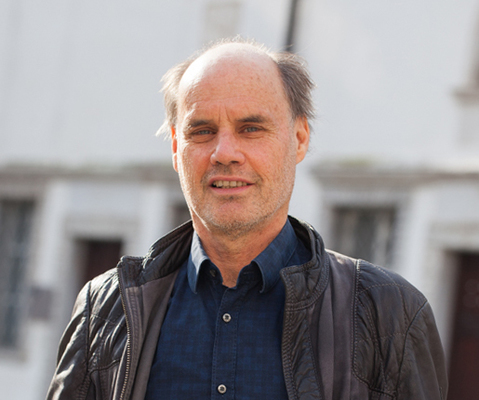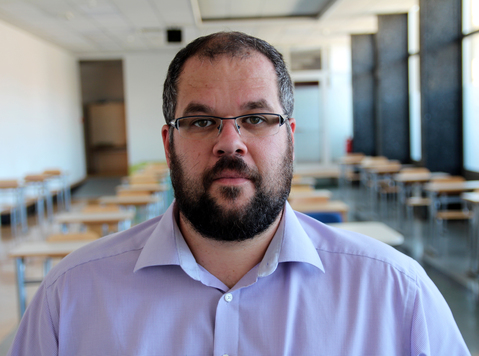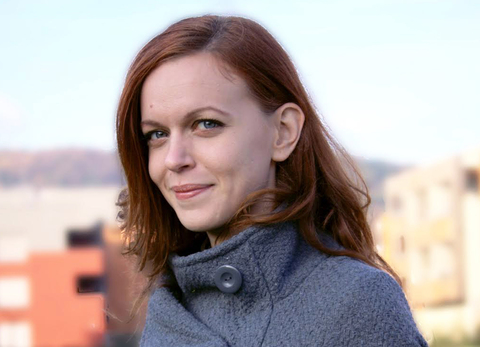Tuesday, 1 September 2020 UP IAM and UP FAMNIT successful with new ARRS research projects
Researchers from UP IAM and UP FAMNIT were successful with their application for new research projects in the "Public call for the (co)financing of research projects in 2020" published by the Slovenian Research Agency (ARRS).
Three basic projects and one post-doctoral project cover research in the fields of mathematics, psychiatry, computational methods and applications, and psychology.
Principal investigators of the approved basic projects are: Prof. Dragan Marusič, Prof. Diego De Leo, Assist. Prof. Nino Bašić and Nuša Zadravec Šedivy, PhD.
Other Slovenian research institutions will participate in the research activities in these projects, while UP FAMNIT will simultaneously participate in three basic projects in the role of a partner:
- Autonomic edge computing for air quality monitoring (leading institution: InnoRenew CoE, Principal investigator: Prof. Michaël Mrissa);
- Development of antibacterial compounds targeting validated enzymes in peptidoglycan biosynthesis (leading institution: Faculty of Pharmacy, University of Ljubljana, Principal investigator: Prof. Stanislav Gobec);
- Chemical Carcinogenesis: Mechanistic Insights (leading institution: Faculty of Chemistry and Chemical Engineering, University of Maribor, Principal investigator: Assoc. Prof. Dr. Urban Bren).
One postdoctoral research project was also gained by the UP Faculty of Management, while other UP faculties will participate as partners in various other projects.
ARRS Basic research projects involve experimental or theoretical work with which we hope to gain new insights into the foundations of phenomena and perceptual facts. Given that the criteria for evaluating projects include scientific excellence of researchers as well as scientific, technological and innovative excellence of the project itself, the new success is a further confirmation of the quality work of researchers at the University of Primorska.
We congratulate our researchers and wish them successful work in the future!
 Title: Symmetries in graphs via rigid cells (Basic project)
Title: Symmetries in graphs via rigid cells (Basic project)
Area: Mathematics
Lead research organisation: UP IAM
Principal investigator: Prof. Dragan Marušič
Partners: UL PEF, UP FAMNIT
The following main lines of research will be pursued within this project proposal:
- Studying the structure of rigid cells in vertex-transitive graphs.
- Studying the structure of automorphisms giving rise to rigid cells. In particular, addressing the following question: under what conditions automorphisms of the same order belong to the same conjugacy class in the automorphism group?
- Finding combinatorial (graph-theoretic) reflections of the concept of real (strongly real) group elements (in particular with regards to consistent cycles in graphs), where an element of a group is real if it belongs to the same conjugacy class as its inverse, and is strongly real if it is conjugate to its inverse via an involution.
Finally, in line with certain opinions in mathematical community that a more conservative use of the Classification of finite simple groups (CFSG) in various problems in algebraic graph theory and the theory of permutation groups should be adopted, attempts will be made to find direct proofs of certain theorems in whose completion the CFSG had played an essential role.
Title: Psychopathology and suicidal behaviour among youth - the role of new technologies in the occurrence of distress and offering help (Basic project)
Area: Psychiatry
Lead research organisation: UP IAM
Principal investigator: Prof. Diego De Leo
In the proposed project we plan a thorough and in-depth study of the relationship between the characteristics of new media (e.g., ways of use, content), aspects of mental health, and psychopathology. We will focus on adolescents who represent a vulnerable group for the incidence of problems in this area and the adverse impacts of the media and modern technologies.
Title: Mathematical and computational methods for polyhedral self-assembly (Basic project)
Area: Computational methods and applications
Lead research organisation: UP FAMNIT
Principal investigator: Assist. Prof. Nino Bašić
Partners: Chemical institute, ABELIUM d.o.o.
The main goal of this project is to further develop existing mathematical models for selfassembly of nanostructures and also create new ones. In particular, we will make heavy use of flag graphs and results from topological graph theory to produce those models. A stronger link between topological graph theory and synthetic biology will be established. All this will be implemented in the form of a user-friendly well-documented library for Python and/or SageMath, which will enable researchers to do various "in silico" experiments. New data structures and algorithms will be developed and incorporated in this software library. This software library will be used to solve several practical self-assembly problems in synthetic biology to demonstrate its usability. Parallelisable algorithms will be developed to enable (computationally intensive) enumerations of strong traces of large polyhedra on multiprocessor systems and computer clusters, which was not possible so far. We will also consider self-assembly of planar nanostructures from the viewpoint of mathematical theory of tilings. The mathematics and software that will be developed will have direct applications in the area of synthetic biology.
Title: Elderly at risk for suicide: approaches to reduce feelings of loneliness and strenghten mental health (Post-doctoral project)
Area: Psychology
Lead research organisation: UP FAMNIT
Principal investigator: Nuša Zadravec Šedivy, PhD
The main purpose of the research is to explore different approaches for reducing social isolation and loneliness and to identify the most effective ways with which preventive action could be taken to reduce mental health problems, mental illness, and suicidal behaviour through the reduction of loneliness. The proposed project will advance the existing knowledge regarding suicide prevention in vulnerable group of elderly. The results will provide further indepth knowledge, which will be directly transferred into practice by implementing interventions for the vulnerable group. Our approach will be based on the newly gained knowledge regarding how to tailor the interventions to the needs of the selected vulnerable group or its subgroups.







